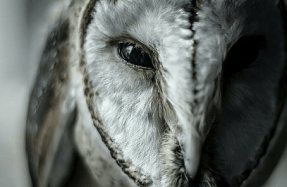How To Corrupt the Youth
 Illustration by Kat Morgan
Illustration by Kat Morgan Briana Toole stands before a small crowd in an auditorium at MIT, explaining why she volunteers her time to teach high school students philosophy. The room is dim, grotto-like; the walls are orange and the chairs are the color of burning embers. Toole is Black, in her early thirties, and accomplished. Most everyone in the audience is white, including myself. We have come to learn how she is transforming the field of dead white men—and why.
A couple hours before, Toole and I sat in her shared office a few stories above campus with a view of the wind-whipped Charles River, sipping hot green tea from paper cups. Toole, who is finishing a fellowship at MIT and has teaching jobs lined up at Baruch College and Claremont McKenna College, was affable and humble, brushing off talk of her coveted fellowship. She told me that she doesn’t believe philosophy should exist in a vacuum. She wants it to touch lives beyond the airy heights of the ivory tower, reaching people who are discriminated against, who live in poor neighborhoods, whom society treats as if their lives don’t matter. In teaching philosophy to teens, what she wants, she says, is to give them something she would have appreciated when she was their age: “the tools they need to be able to explain themselves and defend themselves.”
I’d been interested in meeting Toole ever since I learned about the program she founded in 2016 called “Corrupt the Youth”—a phrase that sounds like the name of a punk band or a strain of pot, but in fact refers to a criminal charge brought against the ancient Greek philosopher Socrates for encouraging the young people of Athens to defy authority and think for themselves. Unlike Socrates, who engaged almost exclusively with the rich and powerful men of Athenian society, Toole teaches high school students from low-income or underrepresented groups. A nonprofit organization, Corrupt the Youth has chapters in Austin, Los Angeles, and New York. The chapter in Los Angeles is geared toward LGBTQ students.
When Toole was awarded her PhD in philosophy in 2018, she became one of only 55 or so Black women philosophers to hold that credential in the US. She says it can get lonely, explaining that white philosophers often don’t understand the struggle of being Black in the field. Sipping her tea, she told me that in graduate school, when she heard a sexist comment, she didn’t have a problem finding a woman she could look to for eye-rolls of mutual acknowledgement. But when she encountered racism, it was different. “There’s no Black person for me to do that with,” she said, “and anywhere I go, I know that’s going to be the case.” Only five percent of bachelor’s degrees in philosophy are earned by Black people. Less than one percent of full time philosophy professors are Black. A few years ago, Tufts professor Lionel McPherson, who is Black, wrote about the hostile environment in a piece for an influential philosophy blog: “I cannot in good conscience encourage any Black student in the US (or UK) to enter the philosophy profession. The extraordinarily few who are determined to go should at least be aware of what
You’re reading a preview, subscribe to read more.
Start your free 30 days





